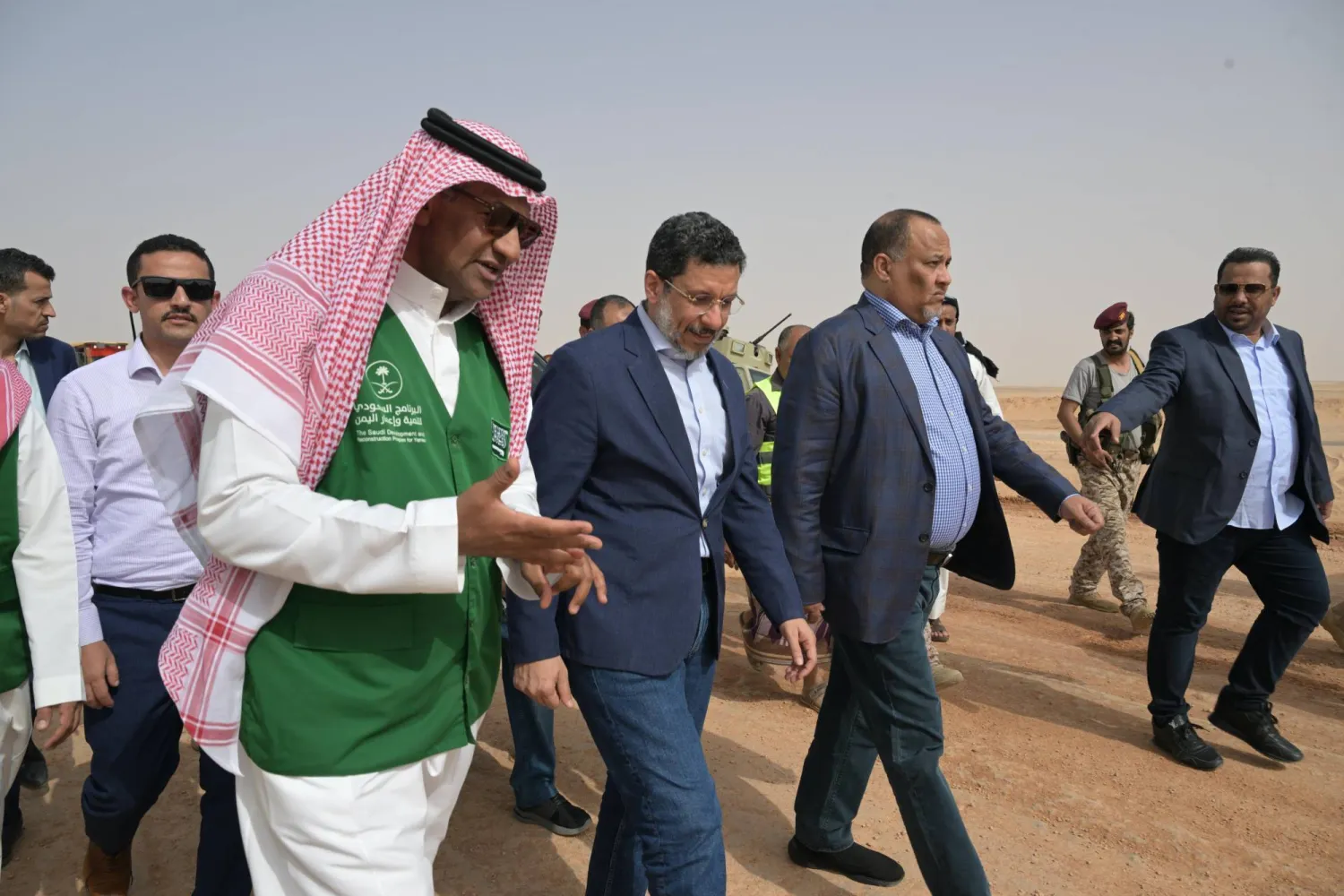Yemeni Prime Minister Ahmed Awad bin Mubarak toured on Sunday the project for the expansion of the al-Abr highway and the rehabilitation of the al-Wadeeah crossing that are being carried out by the Saudi Development and Reconstruction Program for Yemen (SDRPY).
He was accompanied by head of the SDRPY office in Marib Ali al-Dossary and several officials.
“These projects are only a handful of other major strategic ones and they will be followed more in line with the development partnership with the SDRPY, said bin Mubarak.
“We will be together in the battle of building and development,” he added.
He praised Saudi Arabia’s support for vital strategic projects in Yemen, underscoring the importance of the highway that connects Yemen to the Kingdom.
The first phase of the project saw the expansion and rehabilitation of 50 kms of road, stretching from the al-Duwaibi to al-Abr. The second phase will witness work stretching from the Ghuwariban region to al-Duwaibi.
At the al-Wadeeah crossing, the prime minister inspected progress in the project that calls for constructing new buildings and renovating old ones. Work is also underway on roads, squares and public spaces.
The project aims to address the dangers caused by degradation of roads, improve transportation and trade, and facilitate the movement of people.
Al-Abr is seen as a vital highway that connects various Yemeni provinces.









